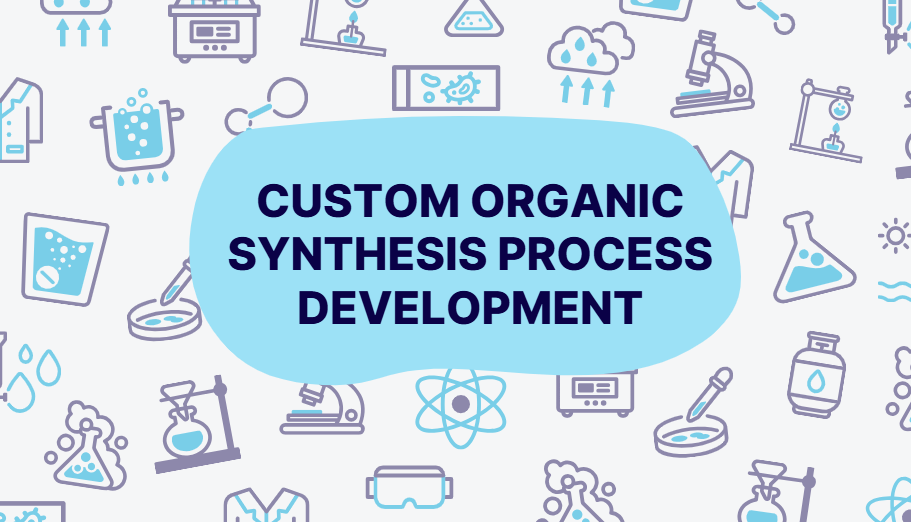Custom polymer synthesis is a cutting-edge field that combines chemistry, engineering, and material science to create polymers tailored to specific functional requirements. These versatile materials find applications across industries, from manufacturing to healthcare. This article explores the profound impact of custom polymer synthesis on industrial and medical applications, showcasing its transformative potential.
What is Custom Polymer Synthesis?
Custom polymer synthesis refers to the tailored design and production of polymeric materials with precise molecular structures and functionalities. By controlling factors such as monomer composition, molecular weight, and crosslinking density, chemists can engineer polymers for targeted applications.
Key benefits of custom polymer synthesis include:
- Enhanced material properties (e.g., strength, elasticity, thermal stability).
- Compatibility with specific industrial or biomedical needs.
- Sustainability through biodegradable and eco-friendly designs.
Applications in Industrial Sectors
1. Advanced Manufacturing
Custom polymers play a crucial role in enhancing manufacturing processes and product performance.
Adhesives and Sealants
- Tailored polymers improve adhesion strength and durability in construction, automotive, and electronics industries.
- Heat- or UV-curable polymers provide quick and efficient bonding.
3D Printing
- Custom-designed photopolymers and thermoplastics ensure precision, strength, and surface finish for additive manufacturing.
- Conductive polymers enable the production of electronic components.
Coatings
- Anti-corrosive and self-healing coatings protect machinery and infrastructure.
- Polymers with hydrophobic properties create water-repellent surfaces.
2. Environmental and Energy Solutions
Innovative polymers contribute to sustainable practices and renewable energy technologies.
Water Treatment
- Functionalized polymers remove heavy metals and organic contaminants.
- pH-responsive hydrogels are used for selective pollutant adsorption.
Energy Storage
- Custom polymer electrolytes improve the efficiency and safety of lithium-ion batteries.
- Conductive polymers enhance the performance of supercapacitors and solar cells.
Biodegradable Plastics
- Polymers synthesized from renewable resources reduce environmental impact.
- Tailored degradation rates match specific disposal conditions.
3. Aerospace and Automotive
The lightweight and durable properties of custom polymers make them indispensable in transportation industries.
- High-performance composites: Reinforced polymers reduce weight while maintaining structural integrity.
- Thermal stability: Polymers withstand extreme temperatures, essential for aerospace components.
- Fuel efficiency: Lightweight materials contribute to lower energy consumption in vehicles.
Applications in Medical Fields
1. Drug Delivery Systems
Custom polymer synthesis enables precise control over drug release, improving therapeutic outcomes.
Targeted Drug Delivery
- Polymers are engineered to release drugs at specific sites, such as tumors or inflamed tissues.
- Stimuli-responsive polymers react to changes in pH, temperature, or enzymatic activity.
Controlled Release Formulations
- Microparticles and hydrogels encapsulate drugs for sustained release, reducing dosing frequency.
- Biodegradable polymers ensure safe degradation post-treatment.
2. Tissue Engineering
Custom polymers mimic the extracellular matrix, providing scaffolds for cell growth and tissue regeneration.
- Hydrogels: Highly porous polymers support cell attachment and nutrient diffusion.
- Bioactive polymers: Enhance tissue integration by promoting cell adhesion and differentiation.
- 3D-printed scaffolds: Tailored designs enable precise replication of tissue structures.
3. Medical Devices
Polymers designed via custom synthesis improve the performance and biocompatibility of medical devices.
- Catheters and implants: Non-toxic, flexible, and durable polymers reduce complications.
- Self-healing materials: Polymers repair minor damages autonomously, extending device life.
- Sensors and diagnostic tools: Conductive polymers enable real-time monitoring of biological parameters.
4. Biodegradable and Bioresorbable Materials
Custom synthesis facilitates the creation of biodegradable polymers that naturally break down in the body.
- Sutures: Polymers dissolve after tissue healing, eliminating the need for removal.
- Orthopedic implants: Materials degrade as bone regenerates, reducing long-term complications.
- Wound dressings: Hydrogels maintain a moist environment while gradually dissolving.
Innovations in Custom Polymer Synthesis
1. Multifunctional Polymers
Combining properties like conductivity, biocompatibility, and responsiveness, these polymers cater to complex applications in bioelectronics and smart materials.
2. Sustainable Polymers
Eco-friendly materials derived from natural monomers are designed to degrade under specific environmental conditions, promoting sustainability.
3. Nanocomposites
Incorporating nanoparticles into custom polymers enhances mechanical, thermal, and electrical properties, expanding their utility in advanced technologies.
Challenges and Opportunities
Challenges
- High cost and complexity of polymer customization.
- Regulatory hurdles, especially in medical applications.
- Limited scalability for certain innovative polymer designs.
Opportunities
- Advances in automation and AI-driven synthesis streamline polymer design.
- Increasing demand for specialized polymers in emerging fields like nanomedicine and green energy.
- Collaboration between academia and industry accelerates innovation.
Why Choose ResolveMass Laboratories for Custom Polymer Synthesis?
At ResolveMass Laboratories, we specialize in delivering cutting-edge polymer solutions tailored to your unique needs. Our capabilities include:
- State-of-the-art synthesis techniques: Precision and scalability for diverse applications.
- Comprehensive analysis: Ensuring polymers meet exacting standards.
- Expert consultation: Guiding you through every stage, from concept to application.
- Custom Polymer Synthesis
- Polymer Characterization
- Smart Materials Development
Contact Us today to explore how we can transform your ideas into reality.
References
- Langer, R., & Tirrell, D. A. (2004). Designing materials for biology and medicine. Nature, 428(6982), 487–492. DOI: 10.1038/nature02388
- Peppas, N. A., et al. (2000). Hydrogels in biology and medicine: From molecular principles to bionanotechnology. Advanced Materials, 12(10), 805–814. DOI: 10.1002/(SICI)1521-4095(200005)12:10<805::AID-ADMA805>3.0.CO;2-K
- Choi, J. S., et al. (2021). Recent advances in the synthesis and application of bio-inspired polymers. Biomacromolecules, 22(5), 1931–1945. DOI: 10.1021/acs.biomac.1c00123

